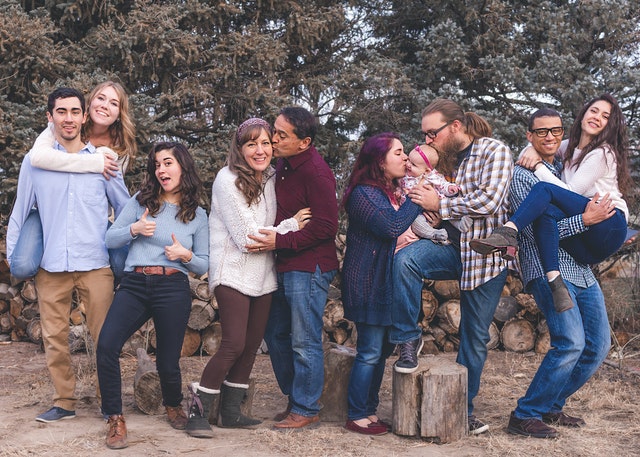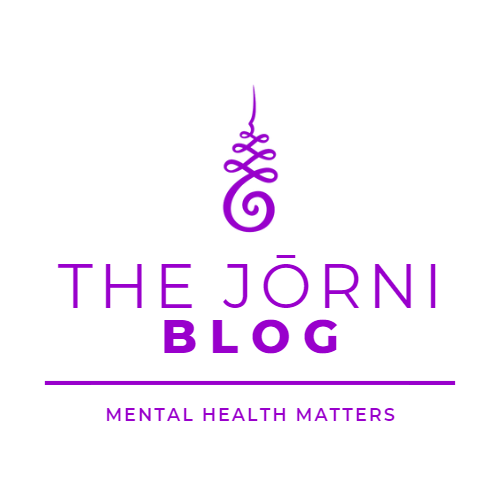
What is empty nest syndrome?
When kids leave and the feeling of an empty nest kicks in
We’ve all heard of the term empty nest syndrome. But maybe in our youth we didn’t really understand the gravity of the feelings that can come with it. It can be incomprehensible to imagine the feelings of deep sadness or even depression until the day actually comes. While the term “empty nest” refers specifically to the last child leaving home, the feelings associated with the syndrome can start to appear even before this time.
Many parents report feeling lonely, depressed, abandoned, aimless, and sad when their children start to have their own serious relationships and start spending more time away from them.
These feelings do tend to come to a head when the kids move out, whether it be into their own home, or to go away for school. These feelings can even start sometime before. If one of your children does a student exchange year abroad, for example.
Important life transitions
While empty nest syndrome is not a clinical disorder, it is a well recognized life transition that can leave some parents facing difficult feelings of profound loss which can lead to depression. The condition tends to affect women more than men, especially women who were full-time mothers. This probably does not come as a surprise and makes a lot of sense.
“Parents can only give good advice or put them on the right paths, but the final forming of a person's character lies in their own hands.”
- Anne Frank
Many women gave up their careers to be full-time mothers. They have spent years caring for their children and in the process have usually had very little time for themselves. When their children move out, it leaves a big hole with nothing to fill it. Whereas many fathers have continued to work and pursue their purpose outside the family, this may not be the case for women.

Why is having an empty nest so hard?
Identity crisis
The job of being a parent never truly ends once you bring life into the world. But the role definitely changes over time. The initial adjustments we make to fit a new child into our lives are life-changing. Many new parents struggle with the drastic way in which their lives shift. From one moment to the next, you are no longer the main focus of your life… nor is your partner. The little human needs all of your attention, love and time, and your job becomes caring for that baby day and night.
For women particularly, life can change a lot. We may go from working full time to staying home. Where you had the freedom to run errands or be active before, you now follow the schedule of a baby’s sleeping and eating patterns. When you’re out, you are likely carrying your baby with you. And you start to wear appropriate, comfortable clothing that can withstand this new job. You may even change the way you talk in front of the child. And your mannerisms might adapt to be more positive and approachable around the baby. In short - we change a lot when we become a parent. And that’s not good or bad, it’s normal.

Redefining yourself as an empty nester
When the transition then comes that your child is ready to leave the home, it’s understandable that there can be deep feelings of sadness, but also purposelessness and identity confusion. We’ve spent all these years adapting our time around their schedules and lives. Then, suddenly, it’s all just handed back to us. Our time is our own again. Our house is our own again… but we may not really remember what we used to do with all that space and time!
Obviously we’ve changed over those years of child raising too. So it can be hard to figure out “who we are” or “who we want to be” without having the kid(s) around all the time. We are left with a lot of questions. It can be incredibly hard to bring the focus back to ourselves and find what makes us happy without kids around. For so many years, our children defined who we were. Now, we have to re-define who we are when our kids are grown.
Becoming the distance parent
Another reason why this transition can have such a deep impact on a parent is because it marks a very distinct shift in parenting. When a child is still living at home, the proximity allows you more insight and understanding into their lives. This can be very comforting and reassuring as a parent. Once a child moves out (especially if they're still at an age where they need guidance with certain things), you become a “distance parent”, which can be a hard transition.
Many parents struggle with knowing how often to call or check in. They spend a lot of their time at home wondering and worrying about how their child is doing. This can cause a lot of extra anxiety along with the feelings of loneliness and sadness. It can be hard to find a new parenting balance of being there for your newly “independent” child and giving them enough space to learn their lessons.
While the transition to independence has already been happening for many years, moving out can represent a final “break” from parental control. This new relationship is completely based on trust and it can be hard to find the courage to let the child have the space they need to grow on their own. Many parents ask their children to call or text every day. Trying to retain some measure of control can be tough for both the child and the parents.
Not being asked for your opinion and support on a regular basis can leave you feeling like you are no longer needed. Becoming a distance parents can bring issues about your own life purpose to the surface. While you used to spend the majority of your time being a hands-on mom, the sudden lack of interaction can lead to feeling empty and redundant.
Marital conflict
Another factor that plays into empty nest syndrome can be how a child leaving the home affects the relationship with your partner. Like I already said, we make a lot of changes when we first become parents. A lot of those patterns and routines stay in place while the kids are growing up. We don’t have the same one-on-one time with our partner like we used to. If we do have some down-time, it’s usually spent with a little one.
So when that child leaves home after so many years and all other distractions are gone, it might be hard to look at the status of that relationship. Maybe you have changed? Maybe the passion doesn’t seem to be there anymore? Or maybe you just don’t really remember how to spend time together intimately. It’s possible that over the years you didn't even notice that you’ve grown apart.

These can be hard discoveries to make. When the last child leaves home it can expose some things that have been buried in denial for years. You might also find that while one partner has continued to work and follow their purpose, your situation might be different. Whereas there used to be a clear definition of roles in your relationship, this has now changed. You are left to redefine your new role in the relationship and this might cause some conflict.
Often, one partner has continued to work and may not understand the feelings that can come with an empty nest. This might lead to a disconnect in your relationship that will need to be resolved. One partner may be fulfilled with their work, hobbies, and social commitments. Meanwhile, the other partner might feel lonely and without purpose and feels like they cannot talk about it.
Impact on the family unit
Although empty nest syndrome usually refers to the last child leaving the home, the feelings associated with it can also come from any child leaving the home. Maybe your firstborn is taking the leap and moving in with a boyfriend one town over. Or maybe they are going off to college or moving out to be closer to their work.
The dynamic of the family still changes drastically when they are no longer in the house. Other siblings can also feel affected by this change. They may start to struggle with sad feelings of their own. Sometimes the older sibling is a grounding, guiding force to younger siblings. It can be a tough transition for younger kids to not have their confidant around as much.
The family dynamic can shift drastically if one child is no longer joining for family dinners or even events or vacations. Everyone gets used to a role they have in the family, and when one member moves on from the family home, these roles might change a lot. Often, a move for school or work can mean a move to another state or across the country and regular visits are just not possible.

Some children find that their parents become overprotective and clingy when their sibling moves out. As parents begin to feel the change from having one child move out, they try to keep their other children close. Sometimes much too close. This can lead to tensions within the family and the younger siblings can be left feeling suffocated.

How to feel better about your empty nest
Plan ahead
A child leaving home is (for the most part) inevitable. Knowing a rough timeline can help us prepare for this event so that we have a support system in place when it happens. You don’t have to wait for the silent house to start bringing the focus back to yourself. Carve out some time to really focus on your own passions and see if there has been anything you put on the back burner for parenting. Maybe it’s time to “unpause” that hobby or start a new routine to get back to your former health.
Don’t impose your own timing
Remember that things change over time. Your child’s timetable might be very different than yours was at their age. Try to avoid imposing your own timetable on their situation and try to help them find their own way instead. At some point, you have to trust the fact that you have raised a very capable human being. They will decide what is right for them in their own time and in a way that works for them.
Set ground rules
Because it can be hard to know how closely to stay in touch once they move out, talk about a plan so everyone knows what to expect. Set regular check in days for phone calls or visits at intervals that you’re both comfortable with. This way you avoid the anxiety of being out of touch, and they avoid feeling overwhelmed with phone calls and helicopter parent texts.

Get support from other empty nesters
Empty nest syndrome is something nearly all parents go through at some point. While each of us deal with the transition differently, it can help to reach out to others who have been there too. Talk to a friend or seek out a therapist to help you make sense of what you’re feeling and what it means. There are also many local and online groups that meet and support each other through this transition.
Create a new space out of your empty nest
Some of my friends moved out and a few weeks later found out that their bedroom had been converted into an exercise room or a library. Although you might want to hang on to your childrens’ rooms exactly as they were, this might also be a good time to let go.
When a child moves out, you can start decluttering the house. You can also redecorate in a style that suits you instead of a family with small kids. You can always keep that fold-out couch for when your kids visit, but it might feel good to recreate your space and make it yours again.
Travel
Depending on the health crisis, this might also be the ideal time to travel. With the kids out of the house, you can finally take that trip to Europe you always wanted to go on. Or spend a weekend with your girlfriends on a city break. Travelling with your partner, friends, or family can give you a new perspective and even inspire you for what you might want to do next.
Revamp your career
Some people find that when their children move out, they would love to have some kind of career again. Depending on your previous education and experience, you might be able to find something you really enjoy doing. Often, we choose a career based on earning an income. After your children leave home, you might be able to choose your work based on what you love doing. Working and earning an income will give you a purpose again, which can go a long way in healing through the change.
Volunteer
A lot of people choose to spend some of their time volunteering once their kids move out. You may or may not be working, but you will likely have a lot more free time than before. Maybe you love animals and want to volunteer at an animal shelter. Or you choose to help with the local food bank or homeless shelter. Non-profit organizations are usually very grateful for the extra help and giving back to the community is very fulfilling.

Look at your finances
You may have let your finances take a bit of a beating while you were raising your kids. This happens more often than you think. People get very busy and the priority is on the family and not the finances. Now might be a great time to make an appointment with your financial advisor. Maybe you are thinking of downsizing. Or you want to make a plan for retirement. However your new situation evolves, getting some advice on how to proceed might be helpful.

The Takeaway
Life transitions are always hard. When we face a major shift, we have to reinvent ourselves in order to adapt to the new circumstances. It can be uncomfortable to change, but it is a necessary part of moving through life. Looking on the positive side of these transitions is always a good way to find the momentum to get past them.

Try to focus on the incredible milestone in your child’s life. They are able to become independent in large part because of your guidance and parenting over the years. So in a way, this is proof of how successful your relationship has been.
Also, while your relationship with them will change, it will also bring a lot of joy in new ways.
Becoming the parent to adult children has many of its own incredible benefits. It can take a bit of distance for children to come to understand and appreciate everything you used to do for them. Gaining that perspective is part of their maturing and becoming more independent.
Most importantly, as much as you may not want to do it, bringing the focus back to yourself can be a really rewarding journey. So many of us haven’t had the time to ask ourselves who we want to be and what we like to do in years. Now is the time to ask yourself. There is plenty of time to make adjustments to your path and maybe make changes to things that haven’t been right for a while.
A new beginning with an empty nest
In this way, “empty nest” can signal a revival of vibrance and care in your life that carries you forward with new momentum. There is still much joy ahead, and ironically, the more you start to rediscover yourself, the more you will have to share with your grown kids. You might find out that you both like some of the same hobbies. Things like that will connect you even deeper.
You have given many years to raising your children. There is nothing wrong with taking some time for yourself now. Your kids will always be your kids. They will visit. You will share their lives and maybe even have grandchildren in the future. And in addition, you will now have the freedom to find yourself again as well.

From experience, it is extremely hard to watch your parents suffer when you leave home. For me, I felt much happier knowing that both of my parents were working. They also had their own hobbies and stayed busy with travelling. Knowing that they were ok lifted a huge burden off my shoulders and I was free to start building my own life.
Understand that your children want you to be happy and find your own path. They definitely don’t want to be the cause of your misery after you have given up so much to raise them.
So, go out and find yourself. Find out what makes you happy and follow your own path. And then share all your new adventures with your family. They will be excited to hear what you have been up to!
Sources
https://www.helpguide.org/articles/depression/helping-someone-with-depression.htm
https://www.mayoclinic.org/diseases-conditions/depression/in-depth/depression/art-20045943
https://adaa.org/lgbtq-communities

